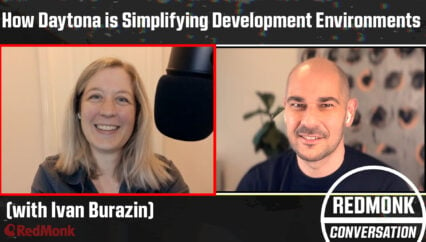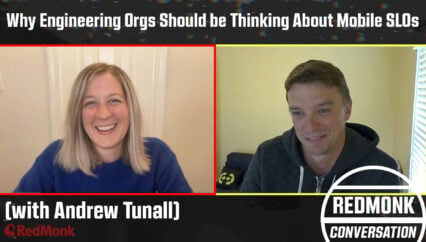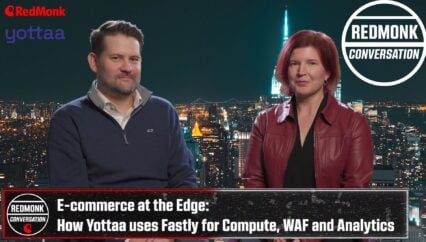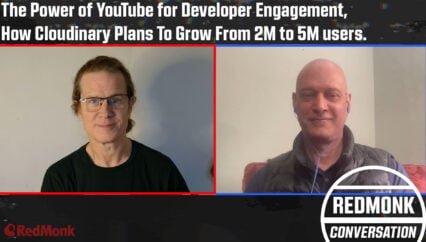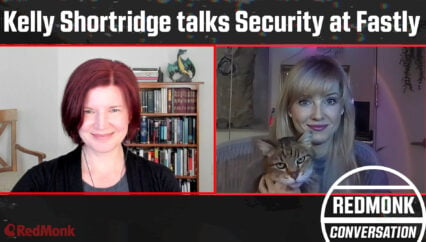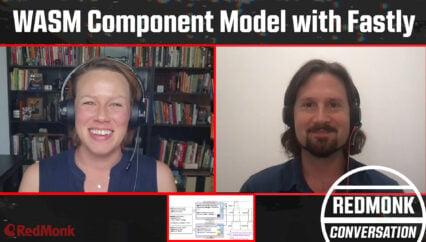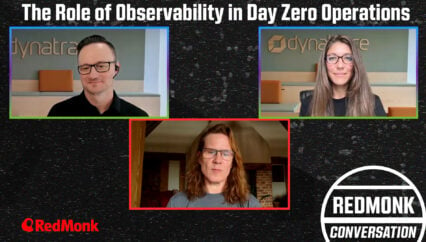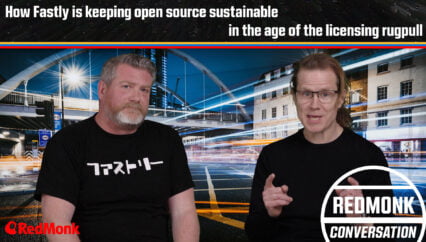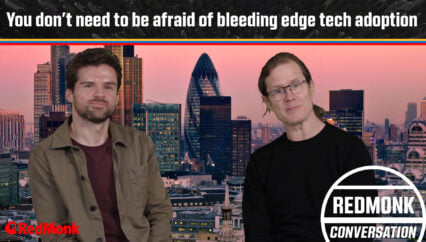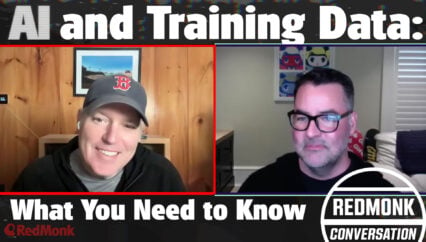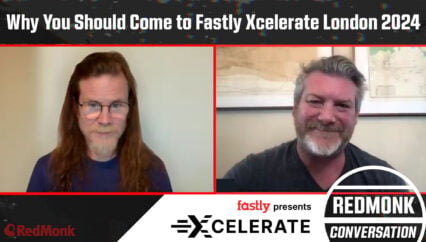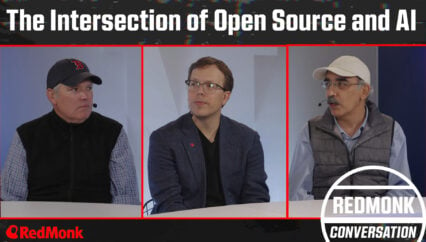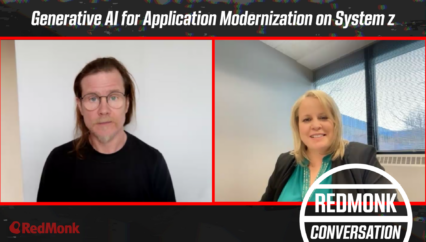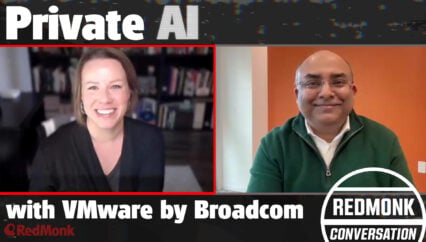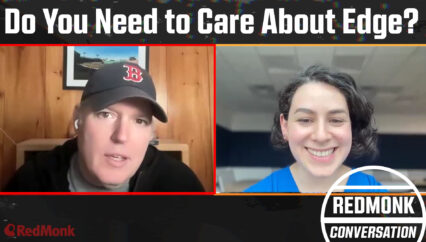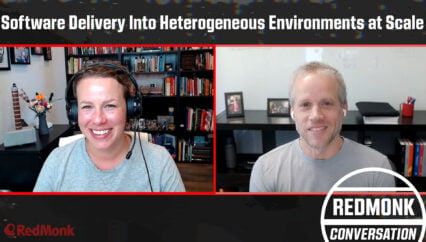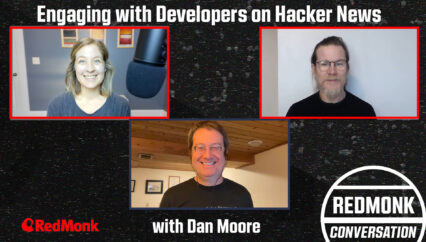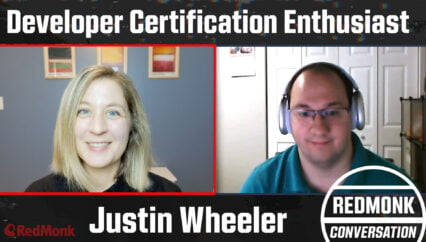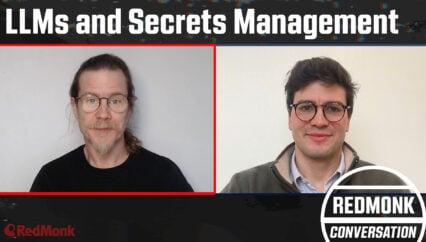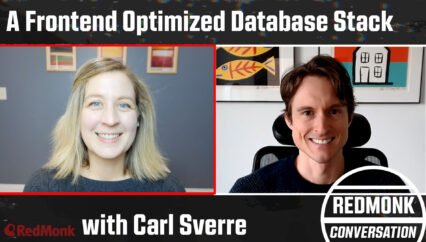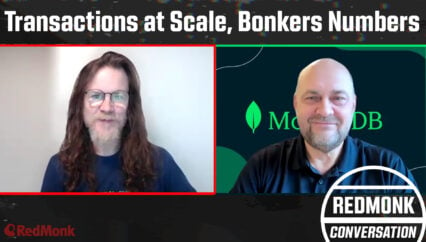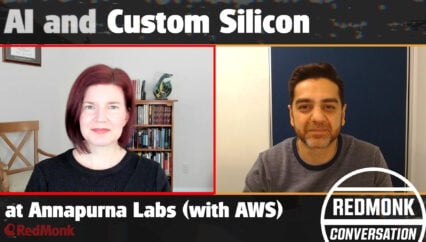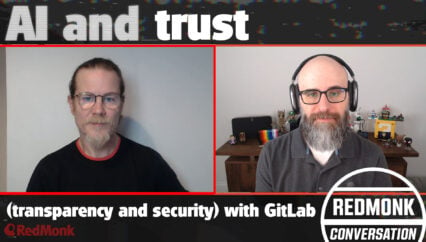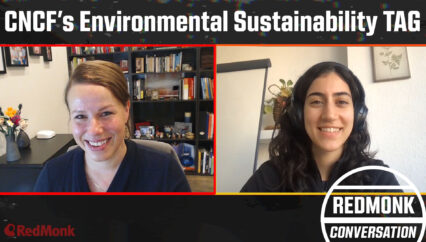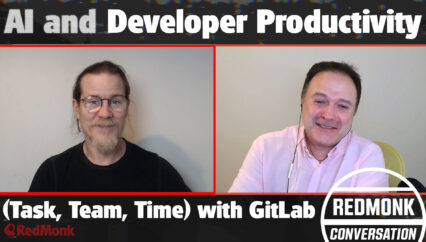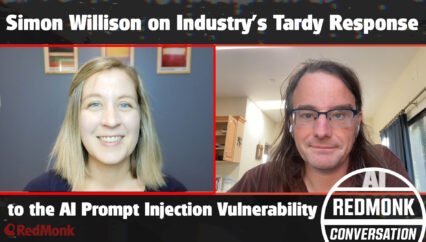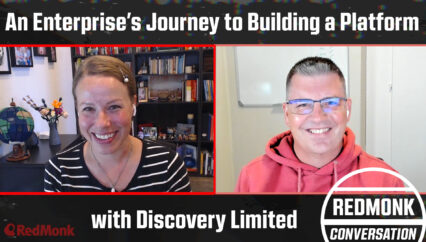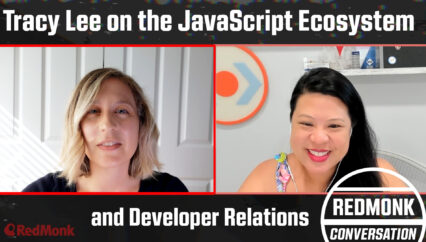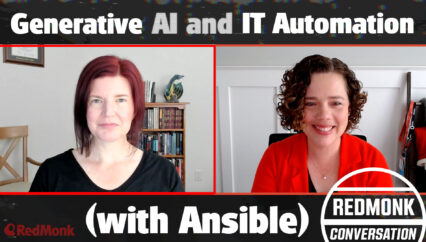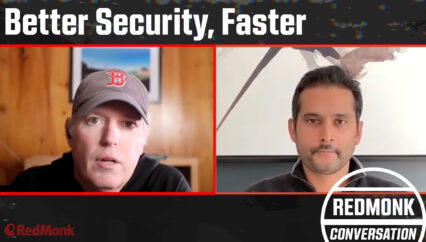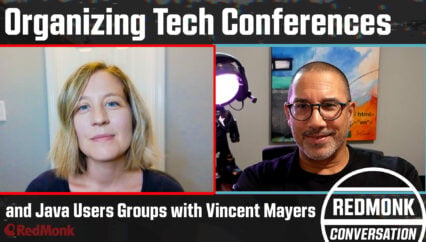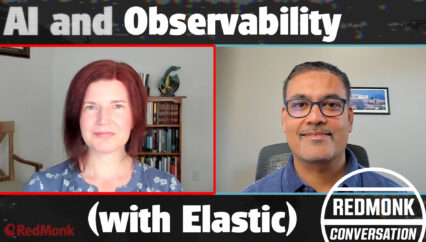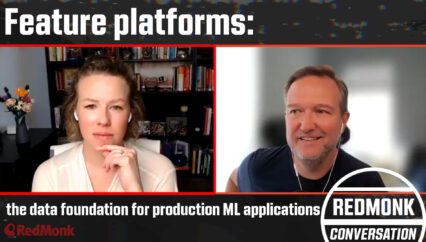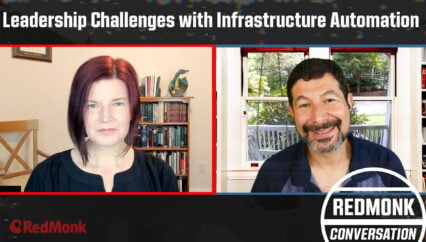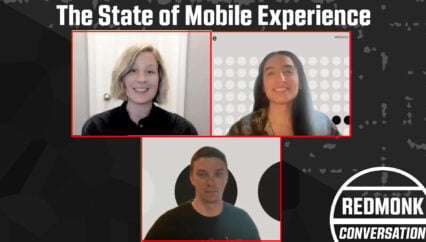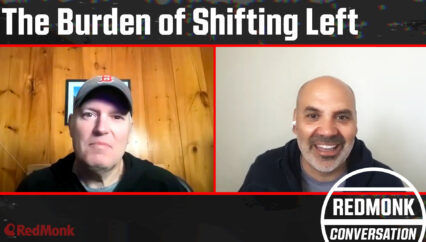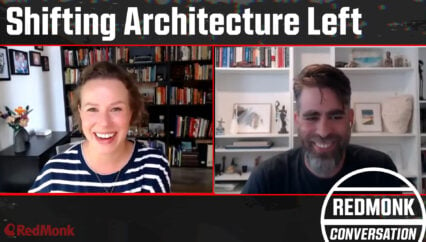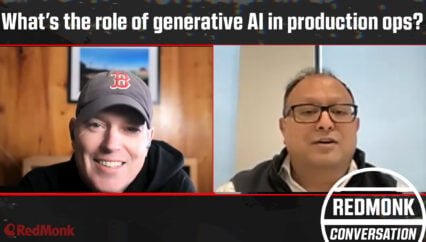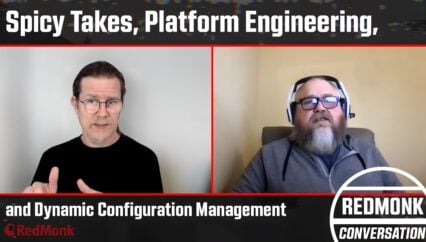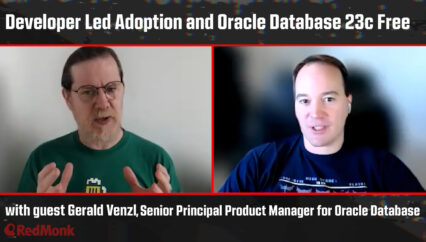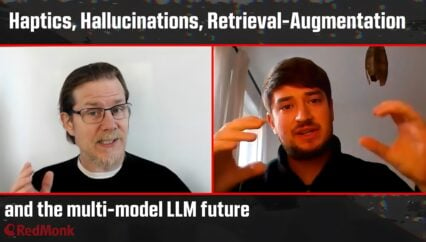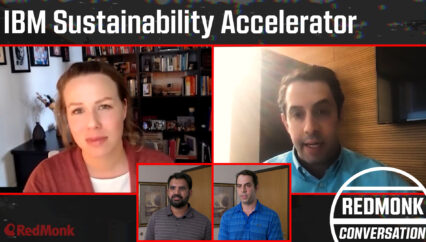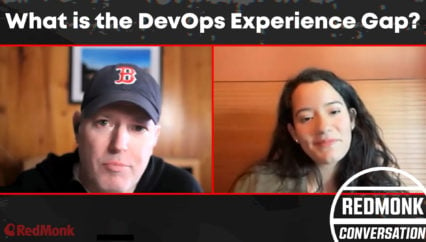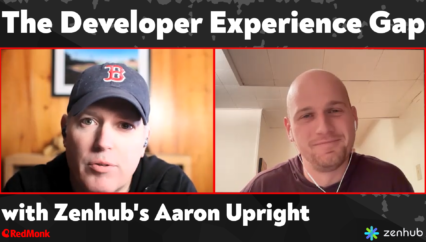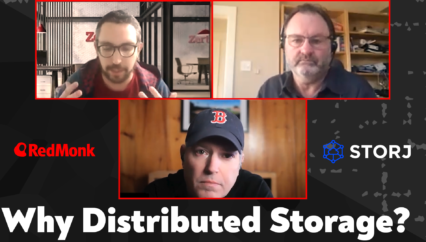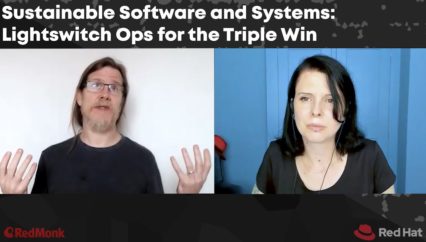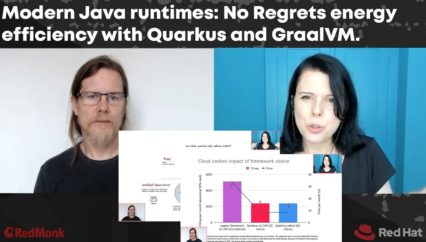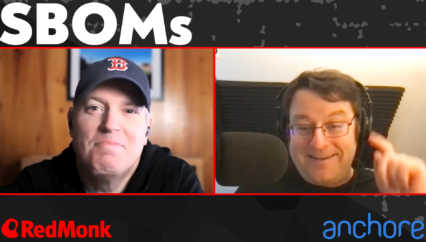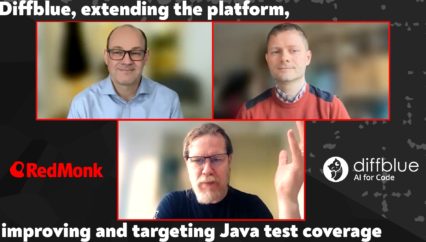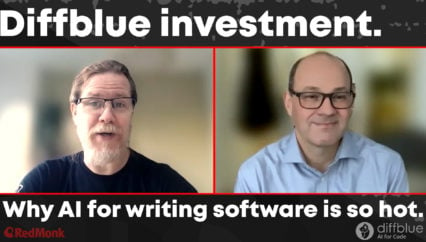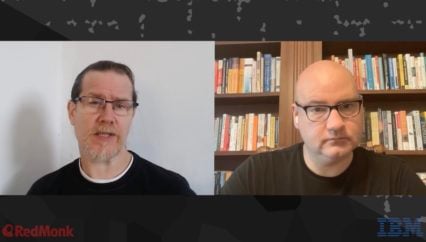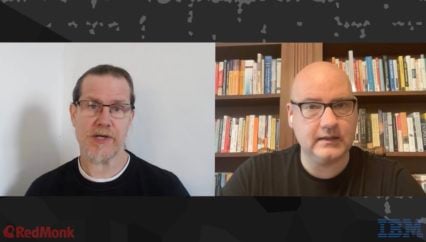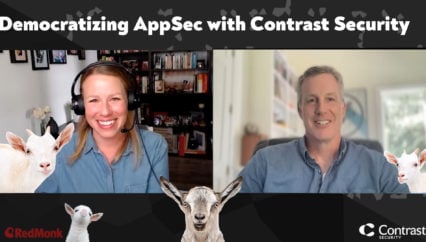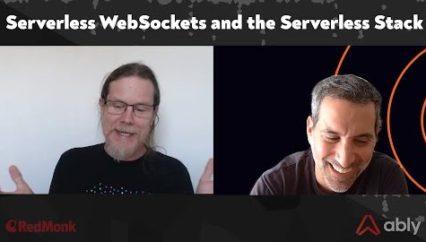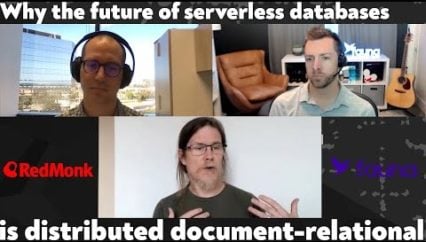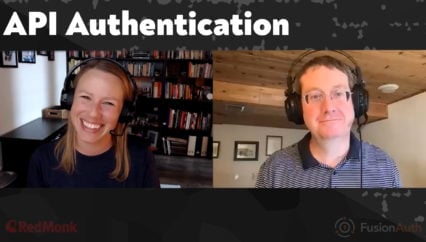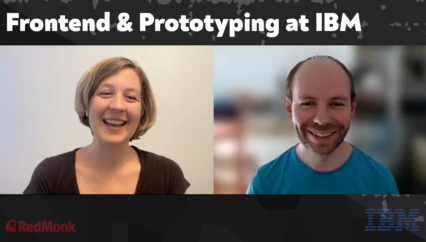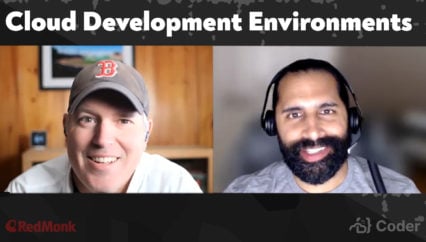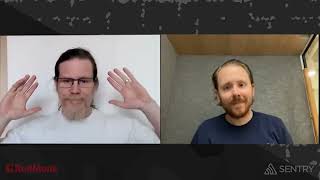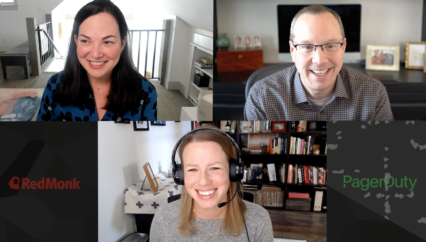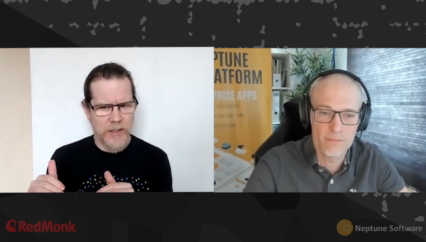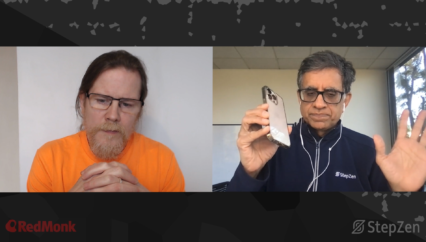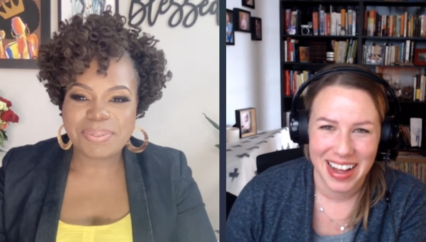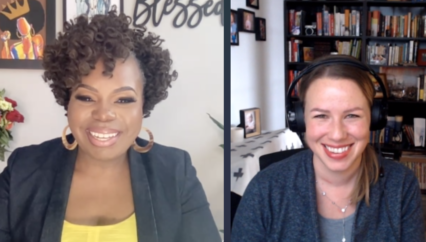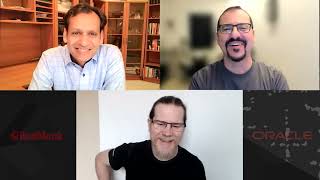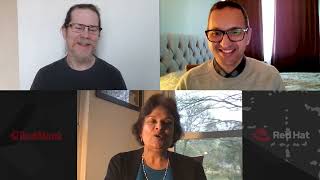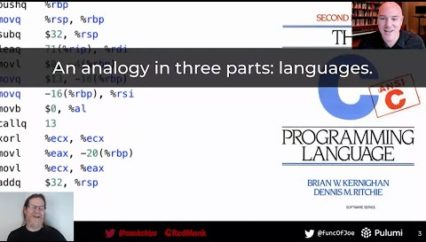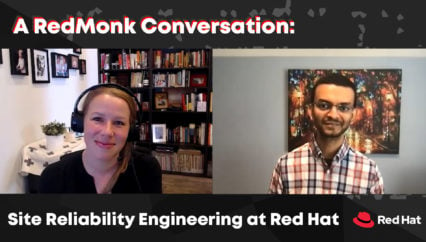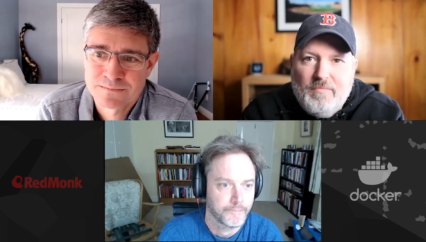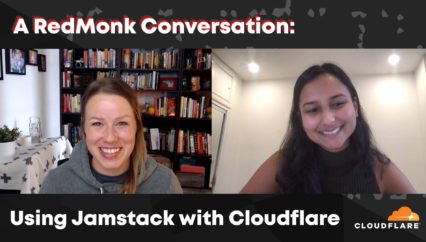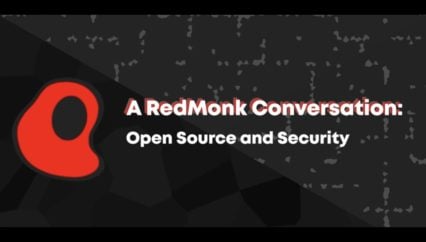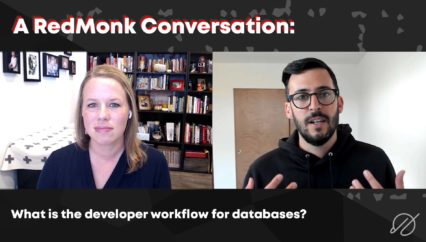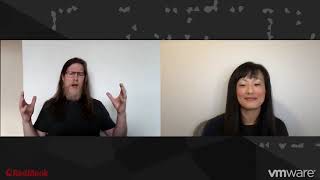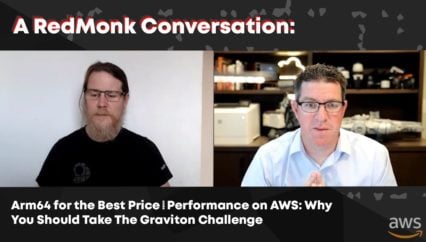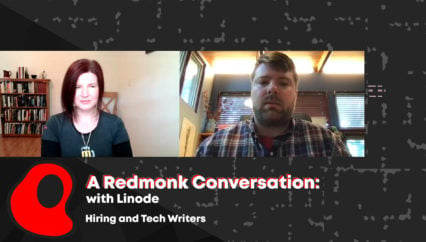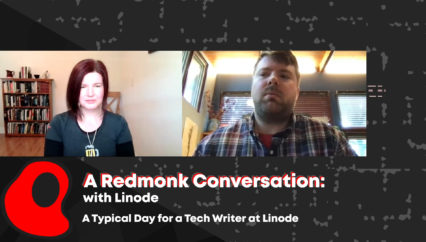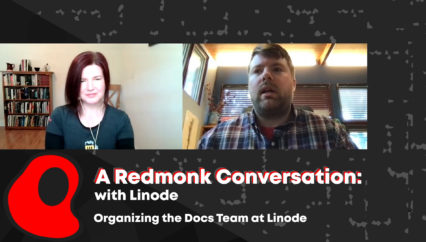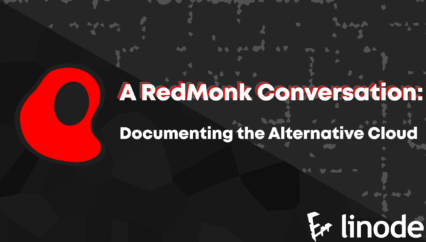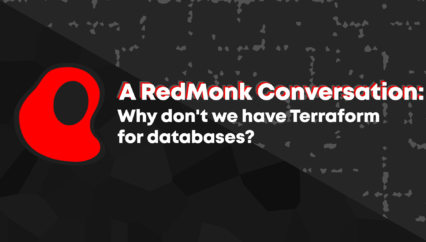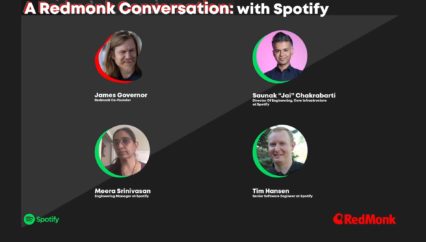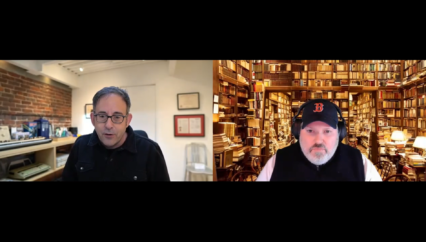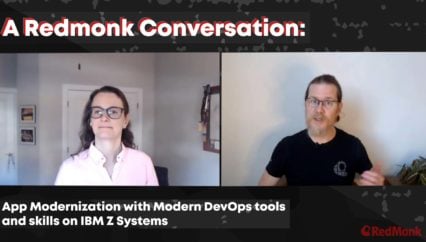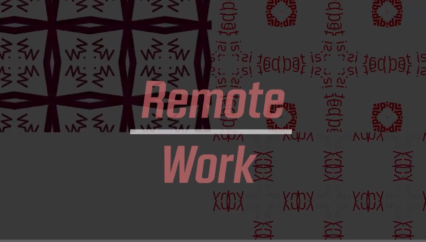As we’ve made our way through the Great Resignation to what some have labeled the “Great Reshuffle,” competition for top tech talent has remained fierce. Retaining such talent can be even trickier, especially in the tech industry, where promotion by job hopping is a common strategy. Under such conditions, how do organizations find and keep exceptional developers and other technical practitioners? How does leadership balance the needs and priorities of technical talent with those of customers, products, and even open source communities? What part might non-managerial leadership opportunities play in keeping developers happy? In this video Chris Wright, CTO and SVP of Global Engineering at Red Hat joins RedMonk’s Kelly Fitzpatrick for a conversation on these larger industry challenges and how Red Hat approaches them.
Related Resources:
This was a RedMonk video, sponsored by Red Hat.
Rather listen to this conversation as a podcast?
Transcript
Kelly Fitzpatrick: Hello and welcome. This is Kelly Fitzpatrick with RedMonk here with a RedMonk Conversation on talent acquisition and retention. Or, how do organizations attract and keep top tech talent? Joining me today is Chris Wright, the CTO and Senior Vice President of Global Engineering at Red Hat. Chris, thank you so much for joining me today.
Chris Wright: You’re welcome. Glad to be here.
Kelly: So developer hiring, training and career paths are something that we follow at RedMonk. And we have had many conversations recently in these areas, especially as the tech industry has kind of wound its way through the Great Resignation to the more recent waves of tech layoffs that some people have called “the Great Reshuffle.” And while I’m not surprised that a CTO cares deeply about talent acquisition, development and retention, can you elaborate a little bit on why these things are important to you and why they’re important to Red Hat?
Chris: Sure. Well, I mean, maybe just start by a little bit of who I am or what my role is at Red Hat. So that kind of combination of CTO and being responsible for global engineering means I have thousands of engineers, more than 5000 engineers that are part of my organization. So it means I’m thinking about talent acquisition, talent development and talent retention a lot. It’s, you know, there’s just a lot of people and we’re trying to do a lot, and, you know, think it’s worth noting that: when you think about engineering, it comes in all different shapes and sizes. I mean, I’m a software engineer and so my background is in development. And I think engineering and go straight to development. But we have product engineering where we’re developing products, we’re stabilizing and doing quality engineering. We’re connecting with our partners and making sure we’re building solutions together. We have innovation happening in emerging technologies. We care about the security footprint of our portfolio. So the point being; there’s a whole breadth of ways that we look at technical talent. And I think that’s important because it you know, it’s like we have to think broadly about how we’re attracting all of those different types of skill sets to our organization. And it’s easy to sort of get down a path that it’s just about developers.
Chris: And of course developers are important and awesome, but there’s a whole bunch that it takes to — a whole lot of skills that it takes to run an organization. Probably another thing that I think about a lot in this context is: open source is just like part and parcel to who we are. And that means our teams work consistently in a community context with open source communities, and we even do collaborative work with our partners and our customers. And so it’s another way to think about talent acquisition and talent development and retention. And of course we’ve got to think about: we’re a business. So we have to think about how we’re developing things together with our business units to work collaboratively to produce something that’s valuable to our customers. So it just means that there’s a lot more than just how can you write code that goes into thinking about the talent acquisition process and and how you develop your talent base within your organization and how you make sure you’re keeping everybody engaged and retain. I mean, there’s a lot going on out there. And we want to be connected with our engineers.
Kelly: Yeah, absolutely. And I love the looking beyond the code and coding skills part of your perspective. And from what we see, competition for top tech talent, including coding skills and all those other pieces that make not only a good engineer, but, a good technical practitioner, that competition can be fierce. Yet from what I can see, Red Hat hires well and I have personally had colleagues from both the tech industry and academia land at Red Hat in various roles. To your mind, what brings folks to Red Hat?
Chris: I love who we are at Red Hat, so I would sum it up maybe really in a pithy single word of something about like culture. But this is about, you know, who we are as a company and as a collection of engineers building something and doing something together. I know I’m here to just make open source ubiquitous. And I think of this as — “how can we use that openness to unlock the world’s potential?” That’s kind of a lofty goal. I mean, it’s a little bit out there, but it’s inspiring. There’s a great element of a mission associated with that that’s beyond just the business, which I think is motivating to people, to engineers who are interested in how they can make a difference. I think I know that’s what drew me here, and I think that’s something that resonates with with many Red Hatters. And we’re surprisingly old. We’ve been around for 30 years. We’re big, we’re over 20,000 employees and we’ve been acquired by IBM. So there’s a lot of change that’s happened through our history. But that focus on open source and that sense of — “we’re on a mission,” I think is something that is attractive and helps us bring people in and bring great talent in.
Chris: I started here 17 years ago, I think of us as this smaller company, this scrappy company that’s, you know, really creating an impact that’s disproportionate to our size. Some of that is just how we work within open source communities. And we really become a part of those communities. And that’s a big part of how we’re successful and attracting talent because we’re visible in those communities. I think we also have maybe taken some less traditional approaches to where we find talent. There’s no shortage of opportunities at those top tier universities to go and do recruiting. And the honest truth is you go there and you sort of stand in line and they give you a ticket and go to the back of the queue because there’s a lot of focus on finding talent from, I don’t know, the MIT’s or the Stanford’s of the world. And so how we find people can be a little different. We’ve looked at different schools and been really successful at finding super motivated people. I put a premium on not just the talent — how are your technical skills, but also just the drive, the initiative, the passion to do something.
Chris: I think that’s really important. And you see that naturally surfacing in open source communities. I mean, I’ve literally worked with high school students in communities who were some of the better developers in those communities. And you can imagine a company saying, we have to wait till this person turns 18 to hire them. I mean, you really get this great view of skills. I think those are ways in which maybe we’re a little different and how we’re attracting some interesting talent. And we’ve introduced a notion of an apprenticeship program. I like how we think about internships. You know, I think it helps us just identify that combination of critical skills. I mean, people need to be able to do the technical part of the job. But also how are you going to work within an our internal community and across into open source communities as a driven, passionate person, that’s focused on the goals that we set. So I think it’s a combination of all those things.
Kelly: And especially in the tech industry, it’s kind of like whatever tech skills you have, you’re going to have to update them so quickly. So I think that willingness to build on what you already have and learn is something that I think often gets overlooked when people are hiring and looking at like prospective talent, but is so important in the long run, especially when you’re investing in people, you know, in their careers.
Chris: I really agree. One of my favorite words in that context would be curiosity. I love to learn personally and having that curiosity is a great way to approach your own development, your ability to learn and adapt because the world changes quickly. And even being curious about how you work with others and impact others, you know, just the way you engage with other people.
Kelly: Yeah, absolutely. And so we’ve we’ve talked a little bit about finding talent and a little bit about growing talent. But it is one thing to recruit talented technical practitioners, developers, you know, all those other positions you talked about, but yet another to retain them and find ways for them to continue to grow their skills. Especially in the tech industry where talent can be lured away not only by promotions and raises, but also the shiniest, newest tech that’s over there, which always looks shinier when it’s not where you are. How does the Red Hat go about this and is there any trick to balancing the type of work that developers want to do that will keep them at an organization, and the needs of say, product and your customers and also open source community.
Chris: I think it’s important to look at this from — this is my perspective. What kind of impact can you create in your role within an organization? And going back to that, it’s almost mission driven, making open source ubiquitous and unlocking the world’s potential. How the work you do impacts the world. And in this case, we’re talking about customers and we focus on enterprise businesses. So maybe it’s a little more boring than just the the big, big world out there. But how we make that impact, I think is a part of the retention. You know the work that you’re doing creates an outcome. And I think of it like as a developer writing code, you want to write, you want to know that it’s being put to use. And it’s exciting to know that your code is literally on Mars or in mission critical data center being a part of the backbone of the economy. And those are really exciting things. And you know, that’s the context where I think you can feel like you’re making a difference. I also think that because of our culture of open source and openness, we are able to retain people in that context of feeling connected — not just to the business but to the people around you. To the customers you’re working with and to the open source communities that you’re involved in.
Chris: And that’s maybe contrasted with — I mean, the honest truth is we lose people just like any company. People leave. There’s definitely a perception that the interesting stuff and the real innovation is happening somewhere else in a shinier, greener pasture often associated with hyperscalers or startups. So we lose people to those businesses. We also have a relatively high boomerang rate. And so I think one thing that’s interesting is people come back because they went there and discovered well, the culture was toxic. It was a pressure cooker situation — I got to work on open source code, but there wasn’t really any meaningful way to contribute back to the community and everything we do as community contributions associated with it. So, you know, like you said, it can look shinier. Every business, every company has some great things about them and some really challenging things about them. And I think we’ve found an interesting balance that really is part of how we retain talent. And I do like that notion of the impact that you create and customers are so important because you learn a lot. I mean I really spend my time with customers on purpose because I like understanding what problems they have. So I’ve spent a lot of time in open source communities and you can get disconnected from the actual problems you’re solving and get into some sense of really just perfecting the technology.
Chris: That’s satisfying. And, you know, you can scratch an itch of curiosity for a while. For me, I think knowing how it gets put to use and being connected to all of that is, is also important. So we try to make sure our teams are connected to the impact that they’re creating. And then, we make sure to think about how we’re delivering to customers, but also creating innovation. I mean, we’re part of communities, we are part of the process. The open source communities are where all of the really amazing cool ideas are coming from. We’re a part of that. So we are innovative and it may not always show up that way in that top level view of — it’s really just the startups or the hyperscalers that are doing this. But we do a lot of work together in communities that are really exciting. And so we showcase that internally and we talk about that. I think all of this combined with that notion that we’re making an impact and through this business success, we’re able to invest more in open source communities. In a sense we’re really changing things. That’s pretty cool. That’s pretty exciting.
Kelly: Yeah. And I think the phrase that we hear often is stewardship when we’re talking about open source communities as well. And having resources to throw at that, whether it’s people or time or efforts towards things like documentation which are often under-resourced but important to open source projects. I think it’s so great to be able to have that and the means to contribute in those ways. As I noted earlier, I think it’s a great sign when a CTO cares about hiring and growing tech talent. However, executing on such an endeavor requires support and leadership at various levels. And to that end, what role do you see leadership development playing in all this, and how can leadership roles, especially those that are not necessarily managerial — which for some tech folks — they never want to be a manager, but they’re okay with leading. How can these roles themselves be a draw for top tech talent?
Chris: I’m smiling because I was one of those developers who never wanted to be in a managerial leadership role.
Kelly: “I never want to be in charge of anything!”
Chris: So implicit in that is, as humans, we change. We grow and evolve and your interests change and opportunities can be unexpected. And it’s hard to predict where you’ll be in the future. And in that context, I think leadership is — it’s usually connected to managers and executive teams and that kind of thing. I think about it a little differently. And I know at Red Hat, we tried to approach it from the perspective that there are leadership opportunities in every role. And I feel a little bit like — you’re a leader and you’re a leader and you’re a leader — and I don’t mean it that way, but just the way that you show up in any context, there’s an opportunity to show up in a leadership way because who you are and the behavior that you display. You’re making a contribution to a team, you’re building consensus that takes leadership skills. And so, you know, I think it’s really important to think about how we develop those skills and recognize that they’re important. We have an individual contributor kind of career ladder, if you will, that as you grow through that process and are promoted into the higher levels of being an engineer, the types of expectations that we place on those engineers changes a little bit and we think about how important your skills are in working with others. I certainly think a team with really smart people can do great things.
Chris: But you can also have smart people that aren’t very good at working with others and then the team’s not going to be all that great. You know, I sometimes use the phrase “jerks need not apply.” We just don’t need the super “I need to be the loudest, smartest person in the room” type of engineer always because that can be off putting and really kill some of the team dynamics. So again, just how you show up is a form of leadership. And we have training programs that help develop our leaders. Certainly some are very focused on the managerial side. But some are more focused on that individual contributor and engineering role. Within Red Hat, we use the label “distinguished engineer” for one of our higher levels and we have a leadership development program aimed at distinguished engineers that works on, sometimes referred to as more of the soft skills. But you think about how you connect to your audience, which in some cases are deeply technical and it’s all about — “I can prove to you with logic why this is the better idea.” In some cases you’re talking to business owners who actually aren’t that interested in the technical details and you still need to influence an outcome.
Chris: And that that process of influencing to me, I would say, is a leadership skill. So I think it’s important we invest time in helping build those skills. The other thing that I really like is leadership is a set of skills that you can develop. So some people will just come more innately skilled at leadership and some will need more work to develop those skills. But it’s the kind of thing that you put time in. You focus on that development and you’ll improve and your leadership skills will improve. I think about this — I give a lot of presentations. I wouldn’t say I’m a natural presenter, but through practice and just learning, it’s a skill you can develop. And like I hated it in the beginning and I’m much more comfortable now. So, leadership is in that same context. I think it’s — we think about this in every way we’re connecting with each other, with projects, with communities. There’s an opportunity to step up as a leader. And it’s not confined to managers. It’s not confined to the tech lead of the team. It’s just opportunistic in any moment. And there’s a lot of great skills that you can develop and think they serve you well throughout your career, independent of what track you’re on.
Kelly: Yeah, and I love that idea of leadership as a set of skills that you can develop and not something that you’re boxed into or typecast into, because sometimes people feel that they’ve taken this one path and there’s no way out of it. But you can learn new things and do new things and kind of shape your future in different ways.
Chris: I agree.
Kelly: So I think that is a great final takeaway, that there is always potential for some form of leadership somewhere and that leadership is something folks can develop. And on that note, we’re out of time, but this has been a great conversation. Chris, thank you so much for taking time out of what I assume is your very busy schedule to share your thoughts on attracting, keeping and developing top tech talent.
Chris: Happy to do so. Thank you. I really enjoyed it.
